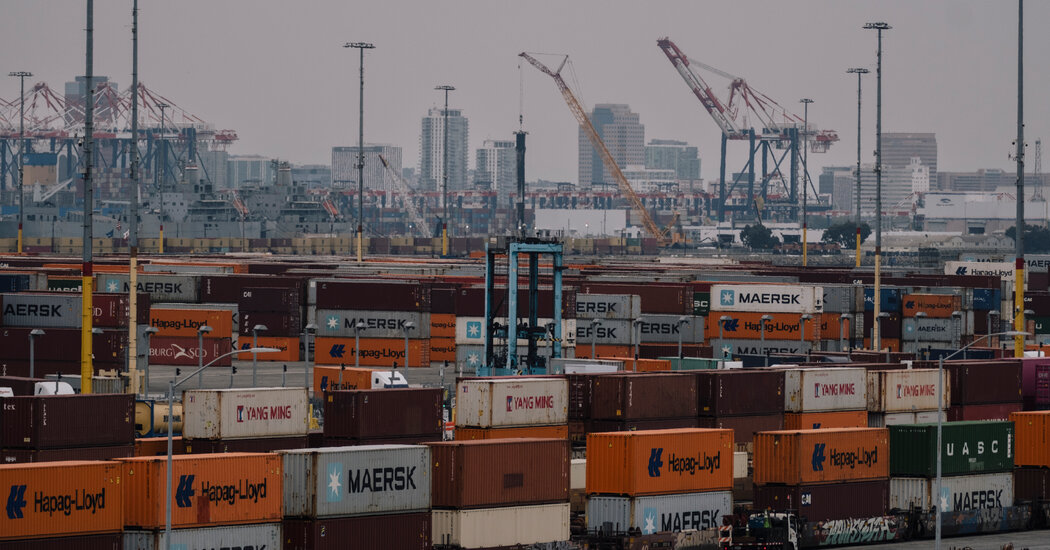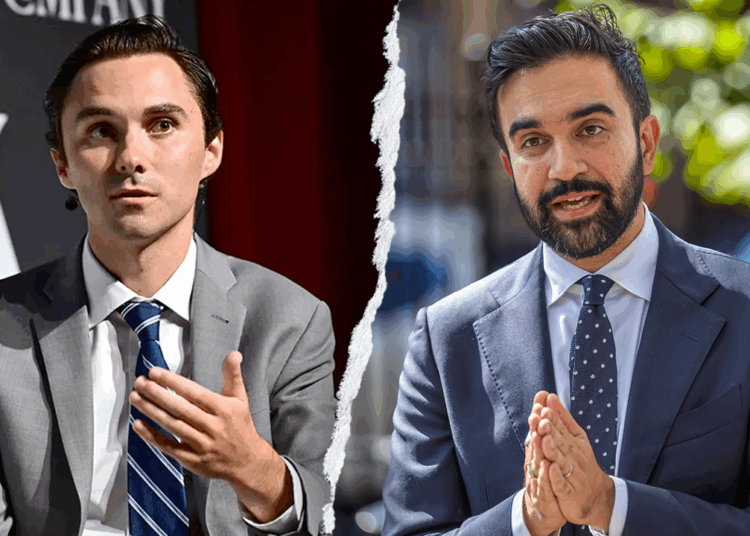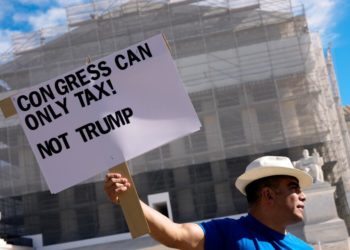Opponents of President Trump’s tariffs program and the federal appeals court that rejected it both said it ran afoul of the “major questions doctrine,” which requires Congress to use plain and direct language to authorize sweeping economic actions by the executive branch.
The 1977 law that Mr. Trump relies on, the International Emergency Economic Powers Act, might seem to fail that test, as it does not feature the word “tariffs” or similar terms like “duties,” “customs,” “taxes” or “imposts.”
There is no question that the tariffs will have vast economic consequences, measured in the trillions of dollars. The sums involved are far larger than the roughly $500 billion at issue in President Joseph R. Biden Jr.’s student loan forgiveness program, which Chief Justice John G. Roberts Jr., writing for the majority, called “staggering by any measure” and struck down for running afoul of the major questions doctrine.
The doctrine, a judicially created principle of statutory interpretation, is of relatively recent vintage. It follows the premise that Congress does not “hide elephants in mouse holes,” as Justice Antonin Scalia put it in a 2001 opinion. That is to say, if Congress wants to give the president power to take major economic action, it will say so plainly.
The actual words “major questions doctrine” did not appear in a majority opinion until 2022, when Chief Justice Roberts cited them to curtail the Environmental Protection Agency’s power to address climate change. Without “clear congressional authorization,” he wrote, the agency could not act.
That ruling was part of a trend. The court also used the doctrine to reject other elements of the Biden administration’s agenda, including its efforts to address the Covid-19 pandemic and student debt.
The court’s commitment to the doctrine will be tested in its approach to the tariffs program.
In a concurring opinion in June in an unrelated case, however, Justice Brett M. Kavanaugh proposed a distinction that could lay the groundwork for a decision in Mr. Trump’s favor despite the doctrine.
“The major questions canon has not been applied by this court in the national security or foreign policy contexts,” he wrote, adding, “The usual understanding is that Congress intends to give the president substantial authority and flexibility to protect America and the American people.”
Adam Liptak covers the Supreme Court and writes Sidebar, a column on legal developments. A graduate of Yale Law School, he practiced law for 14 years before joining The Times in 2002.
The post A Major Question in the Tariffs Case: The ‘Major Questions Doctrine’ appeared first on New York Times.




